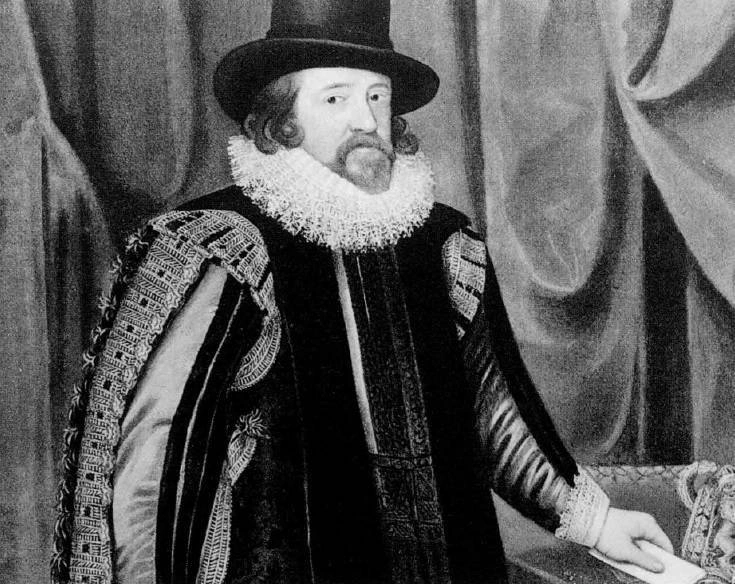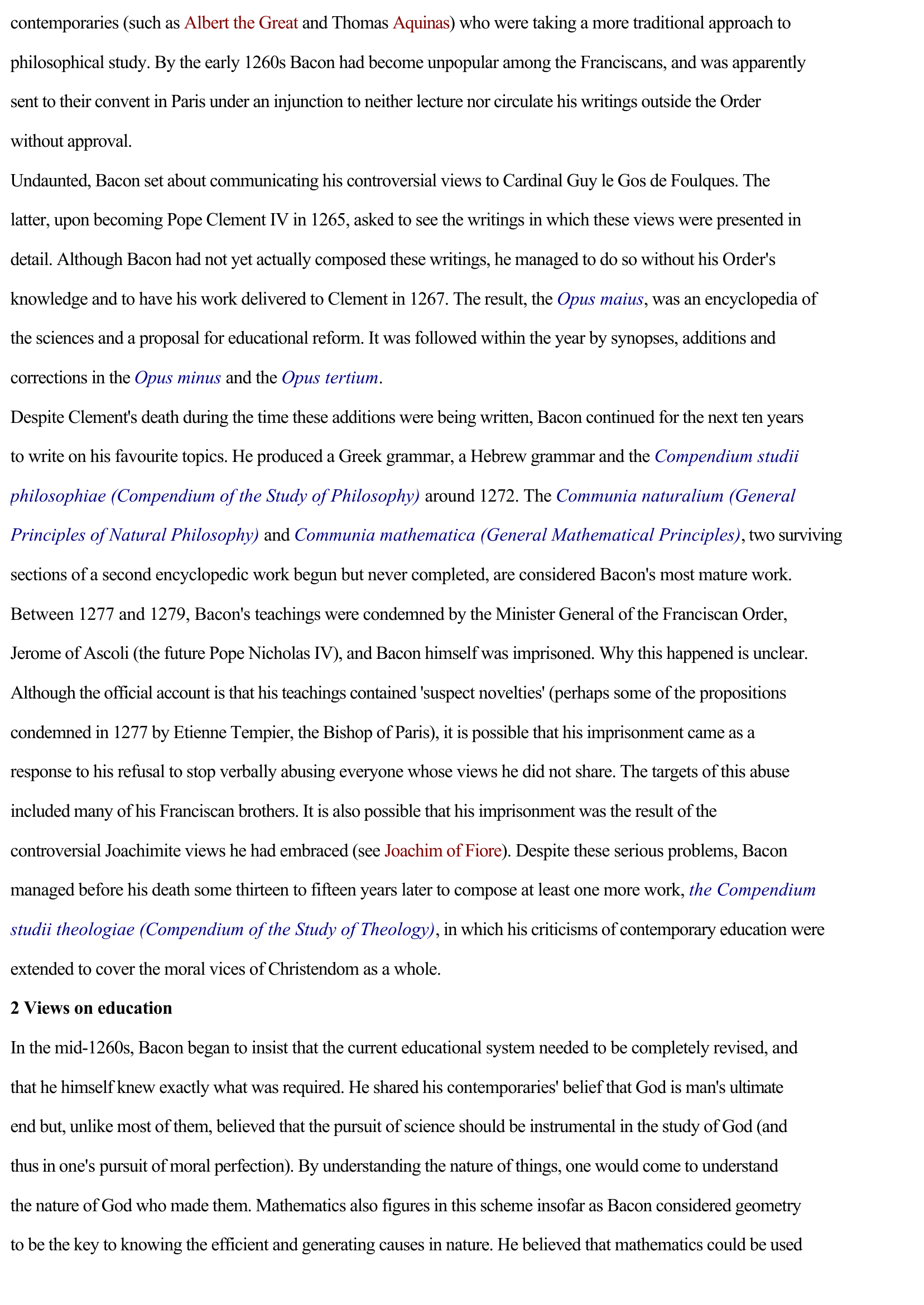Bacon, Roger
Publié le 22/02/2012

Extrait du document


«
contemporaries (such as Albert the Great and Thomas Aquinas ) who were taking a more traditional approach to
philosophical study.
By the early 1260s Bacon had become unpopular among the Franciscans, and was apparently
sent to their convent in Paris under an injunction to neither lecture nor circulate his writings outside the Order
without approval.
Undaunted, Bacon set about communicating his controversial views to Cardinal Guy le Gos de Foulques.
The
latter, upon becoming Pope Clement IV in 1265, asked to see the writings in which these views were presented in
detail.
Although Bacon had not yet actually composed these writings, he managed to do so without his Order's
knowledge and to have his work delivered to Clement in 1267.
The result, the Opus maius , was an encyclopedia of
the sciences and a proposal for educational reform.
It was followed within the year by synopses, additions and
corrections in the Opus minus and the Opus tertium .
Despite Clement's death during the time these additions were being written, Bacon continued for the next ten years
to write on his favourite topics.
He produced a Greek grammar, a Hebrew grammar and the Compendium studii
philosophiae (Compendium of the Study of Philosophy) around 1272.
The Communia naturalium (General
Principles of Natural Philosophy) and Communia mathematica (General Mathematical Principles) , two surviving
sections of a second encyclopedic work begun but never completed, are considered Bacon's most mature work.
Between 1277 and 1279, Bacon's teachings were condemned by the Minister General of the Franciscan Order,
Jerome of Ascoli (the future Pope Nicholas IV), and Bacon himself was imprisoned.
Why this happened is unclear.
Although the official account is that his teachings contained 'suspect novelties' (perhaps some of the propositions
condemned in 1277 by Etienne Tempier, the Bishop of Paris), it is possible that his imprisonment came as a
response to his refusal to stop verbally abusing everyone whose views he did not share.
The targets of this abuse
included many of his Franciscan brothers.
It is also possible that his imprisonment was the result of the
controversial Joachimite views he had embraced (see Joachim of Fiore ).
Despite these serious problems, Bacon
managed before his death some thirteen to fifteen years later to compose at least one more work, the Compendium
studii theologiae (Compendium of the Study of Theology) , in which his criticisms of contemporary education were
extended to cover the moral vices of Christendom as a whole.
2 Views on education
In the mid-1260s, Bacon began to insist that the current educational system needed to be completely revised, and
that he himself knew exactly what was required.
He shared his contemporaries' belief that God is man's ultimate
end but, unlike most of them, believed that the pursuit of science should be instrumental in the study of God (and
thus in one's pursuit of moral perfection).
By understanding the nature of things, one would come to understand
the nature of God who made them.
Mathematics also figures in this scheme insofar as Bacon considered geometry
to be the key to knowing the efficient and generating causes in nature.
He believed that mathematics could be used.
»
↓↓↓ APERÇU DU DOCUMENT ↓↓↓
Liens utiles
- OPUS TERTIUM Roger Bacon - résumé, analyse
- OPUS MAJUS Roger Bacon - résumé, analyse
- OPUS MINUS de Roger Bacon - résumé, analyse
- Bacon, Roger - philosophie.
- Bacon, Roger - science.

































